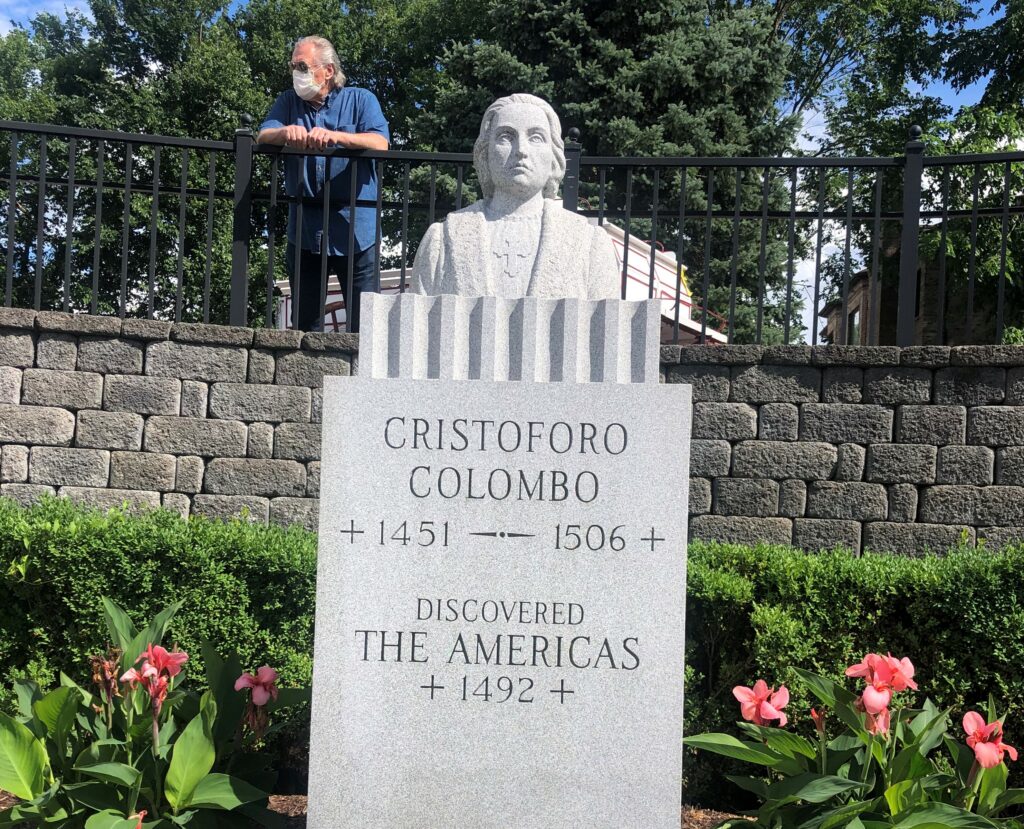Columbus Day Firestorm Sparks Election D-Day

RANDOLPH - There was a time when this now, upper crust, suburban town was a New Jersey version of the "Borscht Belt," a summer oasis for Jewish families.
Estimates are that during the 1930's and 40's, about 10,000 summer tourists a year vacationed at Randolph hotels and bungalows at a time when bigotry prevented many Jews from going elsewhere.
That very admirable part of the town's history was raised during the public portion of a recent school board meeting. It came with the board and community divided - perhaps bitterly so - over how to deal with the history of race and oppression in America.
Somewhat ironically, this debate is playing out in a community with a history of tolerance - tolerance that was not at all universal for the era. Years ago, as a reporter at the Morristown Daily Record, a former planning official from a neighboring town spoke candidly to me about structuring zoning laws to keep out the "Jewish hotels."
Yes, times were different then.
But there is a connection, and it has to do with how we deal with race today.
As most know, the firestorm in Randolph began with a move to change Columbus Day to Indigenous People's Day on the school calendar. That decision was eventually reversed, but not before the board compounded the problem by voting to strip the mention of all holidays from the calendar.
Columbus Day is now back on the school calendar, but the impact lingers on - and will continue to linger at least through the November school election.
Board critics saw the Columbus Day issue as much more than just a label on a calendar. To some, it is a sign of a liberal school board overly concerned with so-called woke culture.
School board meetings in the aftermath of the Columbus Day imbroglio have been dominated by residents condemning all that they see wrong with public education and most especially, "critical race theory," which really is more of a concept than anything else. In simple terms, the theory is that racial bias in American history should be seen as systemic as opposed to expressions of individual bigotry.
Critics say the idea is an attack on America itself. Thus, stopping critical race theory is now a right wing, rallying cry.
Which brings us to the school board election.
Clearly fueled by what went on in Randolph, the Morris County Republican Committee took the unprecedented step of openly advertising for school board candidates. Politics has always been a part of school elections, but they are officially non-partisan; party labels don't appear on the ballot.
The filing deadline for the fall election was Monday and it will likely become clear over time which candidates answered the call of the Morris GOP.
What is known is that a three-person slate has formed in Randolph consisting of Tom Duffy, Michael LoCascio and Peggy Kurtz. They are running under the banner "For the Kids."
Duffy and LoCascio both spoke at the recent board meeting.
LoCascio said he's been unimpressed with the town school system and that after November, he fully expects to be discussing board business not from the audience, but from the dais. Confidence, one supposes, is good.
Duffy gave a hint of where his campaign may be going, saying that he sees critical race theory as akin to communism.
Incumbents Yong Wang and Allison Manfred are seeking reelection. Also in the race is Michael Giordano. Vernetha Hope Powell is not seeking reelection.
Powell, however, did comment at the recent meeting.
Seeking to introduce some scholarship into the critical race theory debate, Powell urged those concerned to read up on the subject, adding that, "racism and discriminatory practices within our country is not theory."
The Jewish tourists who were welcomed in Randolph decades ago when they would have been turned away elsewhere likely would concur.





